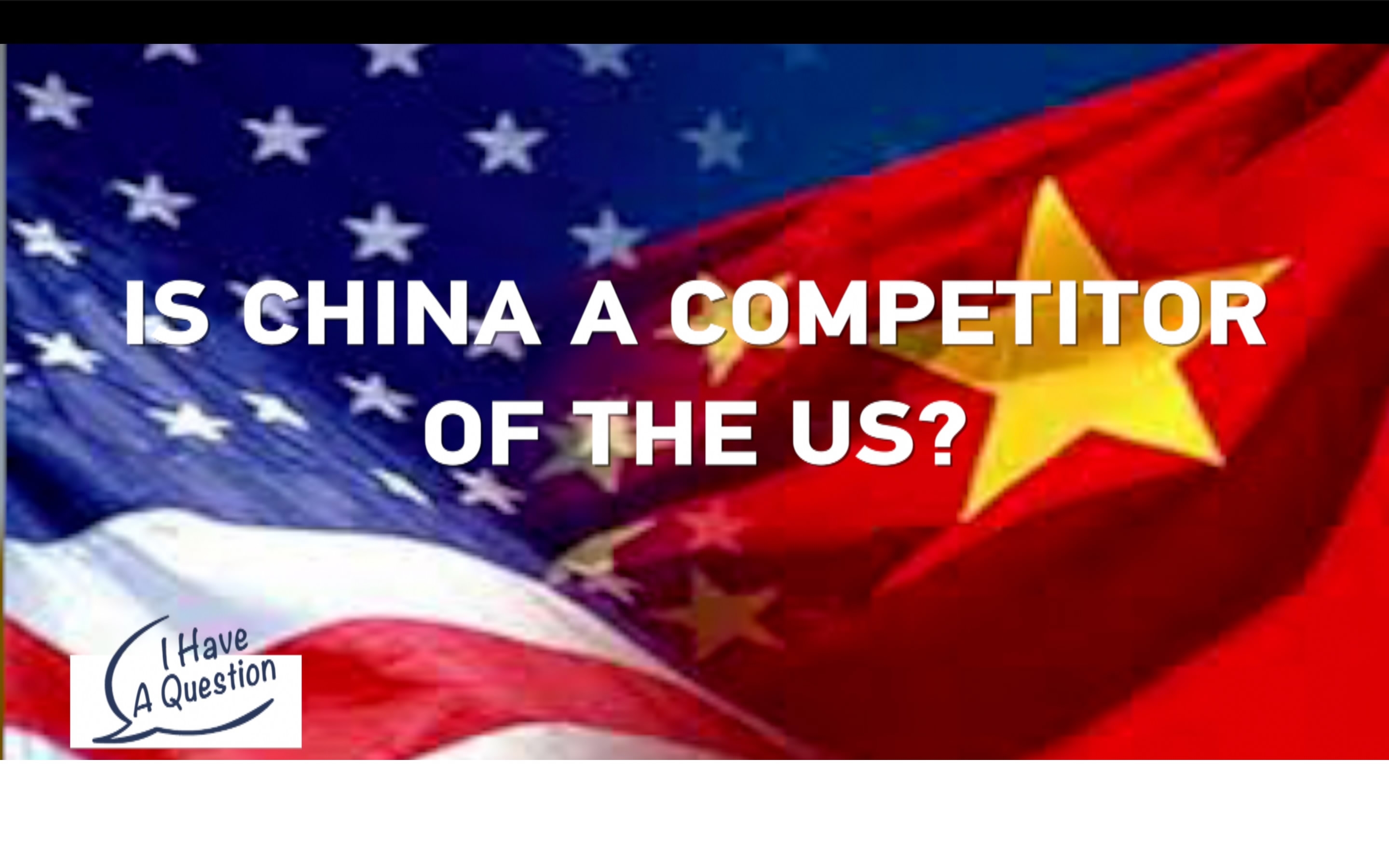
Business
22:29, 07-Mar-2018
I HAVE A QUESTION: What’s the best way to boost China-US ties?
By Han Bin, Wei Lynn, Yuying

IS CHINA A COMPETITOR OF THE US?
This year, China celebrates two 40th anniversaries of sorts: in reform and opening-up, as well as the establishment of China-US diplomatic relations. For the latter, both countries have come a long way since then – Chinese companies have since gone global, while the US has also reaped benefits from China’s low labor costs during the manufacturing boom.
When asked if China is a competitor for the US today, Ker Gibbs, Managing Director of recruitment solutions firm Korn Ferry Futurestep gives a straight-up answer: “absolutely.”
“China is very much a competitor, but not an enemy. There’s a big difference between a competitor and an enemy,” Gibbs proceeds to say.
Looking at it from another perspective, America is also a competitor to China, Gibbs says. He points towards businesses in which both countries are going head to head, such as semiconductors, cloud computing and the technology sector.
“For example, I would argue that WeChat and other similar services have not just competed successfully [with the US] but has surpassed the capabilities that its American counterparts have.”

Ker Gibbs, who is also the former chairman of the American Chamber of Commerce in Shanghai, is confident that both China and the US will get through this rough patch. /CGTN photo
Ker Gibbs, who is also the former chairman of the American Chamber of Commerce in Shanghai, is confident that both China and the US will get through this rough patch. /CGTN photo
To be sure, Gibbs says competition in itself is a good thing – for it pushes all parties to do better.
Shao Yuqin, Senior Research Fellow at the Shanghai Institute of International Studies, prefers to describe the China-US relationship as “partners.”
“We compete with each other in some economic aspects, but China has never sought for policies to remove the US from the Asia Pacific,” Shao says.
WITH POWER COMES RESPONSIBILITY
Shao says it is critical for both China and the US to maintain a beneficial relationship.
“A peaceful, stable bilateral relationship between these two countries will send very important messages to the world. Most countries would not want to see a fight between these two major powers, because this would make them nervous,” Shao says.
“When you are the biggest power in the world, you have to be responsible. You have to think beyond your own interests,” she adds.

Shao Yuqin says in the era of globalization, the best choice for a major economy is to open its door to the world. /CGTN photo
Shao Yuqin says in the era of globalization, the best choice for a major economy is to open its door to the world. /CGTN photo
In 2017, the US trade deficit with China stood at 375 billion US dollars. This comes as US imports from China, at 506 billion, far exceeded US exports to China at just 130 billion.
This has prompted US President Donald Trump to impose a 25-percent tariff on steel imports and a 10-percent tariff on aluminum early this month. Just a month ago, tariffs and quotes were slapped on imported solar panels and washing machines.
“The message is that the US needs to benefit from the relationship in a different way than we have been benefiting in the past. There is a perception in the US that the relationship is not reciprocal,” Gibbs says.
Gibbs asks if the US is picking its battles the right way.
“These solutions Trump is putting in place – are they doing more harm than good? Are these industries [washing machines and solar panels] strategic to the US? If you look at new energy, for example, AI, cloud computing – these are strategic industries of the future.”
Not to mention, by imposing tariffs on solar panels, for example, costs for local US designers and service providers would go up, Gibbs cautions.
‘CHINA-US RELATIONS JUST GETTING STARTED’
That said, Gibbs does not see an actual trade war happening, citing the dependency each country has towards one another. “If you go back to 1986-1987, bilateral trade was worth less than 10 billion dollars. Today, it’s over 600 billion.”
He believes there is plenty of room for future development for both countries, and that the relationship is just really getting started. “If we can get through conflicts, the relationship is going to be even stronger going forward,” he says.
Gibbs has three suggestions to improve China-US relations.
i. Market access should be equal
“Chinese business has free access to markets, but then China doesn’t open up its own markets. For example, banking and insurance – these businesses are fairly restricted here in China and there is an expectation that these sectors should be more open than it is today.”
ii. To increase level of transparency
“As Chinese companies become [more] global, there has to be further realization that [the way of doing] business is different outside of China. There is an expectation on a certain level of transparency when a Chinese buyer enters the US. As Chinese businesses aren’t really set up that way, they may not appreciate the level of transparency in order to smoothly do business in the US.”
(Gibbs was referring to some recent Chinese mergers and acquisitions deals in the US which have been blocked.)
iii. To encourage more people-to-people exchanges
“Today we have almost 300,000 Chinese students studying in the US. I’d like to see more American students coming to China to study or to work [in Chinese businesses]. Right now, there are a lot of visa restrictions… I’d like to see that released. Internet restriction is also another topic most foreigners here constantly talk about.”
Meanwhile, Shao calls for the US to be more confident, and to leverage its culture of always welcoming competition with other countries.
“We have a lot of issues to cooperate on with each other: North Korea nuclear issue, counter-terrorism issues, drug issues… We have to be more open and inclusive to talk and work together, and not have a Cold War mentality,” she says.
(Video filmed by CGTN cameraman Wang Jigang)

SITEMAP
Copyright © 2018 CGTN. Beijing ICP prepared NO.16065310-3
Copyright © 2018 CGTN. Beijing ICP prepared NO.16065310-3